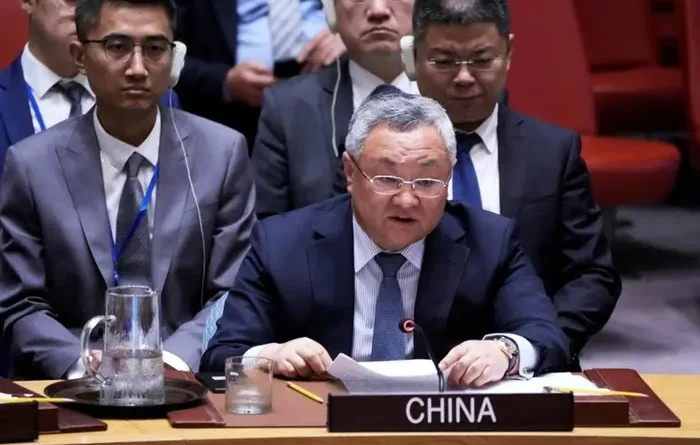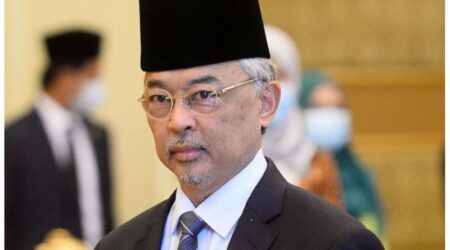China offers to be peacemaker in Iran-Israel war, but is unlikely to intervene
BEIJING (The Straits Times/ANN): As the conflict between Israel and Iran stretches beyond a week, China has found itself sidelined in developments that could yet have far-reaching consequences for its interests in the Middle East.
While Beijing has offered itself as a peacemaker, it is unlikely to wade into the conflict directly, or to supply arms to Iran, say analysts. This is because it wants to avoid confronting the United States, for which military intervention against Iran remains a real possibility.
Chinese President Xi Jinping, in a phone call with Russian President Vladimir Putin on June 19, said China is willing to continue to strengthen communication with all parties and “play a constructive role in restoring peace in the Middle East”.
Hours later, US President Donald Trump effectively gave Iran two weeks to return to the negotiating table to discuss the future of its nuclear programme, by saying he would decide whether the US would attack Iran in that timeframe.
With Iran seriously weakened by the latest hostilities – its top military commanders have been killed, and key nuclear facilities damaged – observers believe the initiative remains with Israel and the US.
At stake for China is energy imports. China is the largest buyer of Iranian oil.
Iran has also threatened to block the Strait of Hormuz, which lies between Iran and Oman and is a major route for oil and gas shipments from the Gulf states to China, including from Saudi Arabia, China’s biggest supplier of crude after Russia.
Even so, beyond issuing diplomatic statements, China is unlikely to intervene, said analysts.
While some have touted China’s growing influence in the Middle East, particularly after it brokered a landmark normalisation deal between archrivals Saudi Arabia and Iran in 2023, it has little appetite to be embroiled in the region’s conflicts.
Associate Professor Jonathan Fulton, an expert in China’s relations with the Middle East, said China’s interests in the Middle East are primarily economic, noting also that it buys much more oil from countries such as Saudi Arabia and Oman than Iran.
“When China looks at Iran, I think they see a partner of limited economic value,” he said. “They also see a country that, through its proxies or its own aggressive behaviour, has destabilised a lot of the Middle East.”
Another major reason for China’s inaction is that it does not want to antagonise the US, said Prof Fulton, who is non-resident senior fellow at the Atlantic Council, a US think-tank.
“Much like the logic with Ukraine – if China gives weapons to Russia and Russia uses them to attack Ukraine, this is going to provoke Nato and make China an enemy in the eyes of countries that it wants to have good economic and political relations with,” he added.
Chinese officials have repeatedly called for a ceasefire since Israel began a major offensive against Iran on June 12 to cripple Tehran’s ability to develop nuclear weapons, seen by Israel as a threat to its security.
Since that first salvo, there have been tit-for-tat air strikes between the two countries, an ongoing conflict that could yet lead to the overthrow of the leaders of the Islamic republic.
China’s Foreign Minister Wang Yi has suggested through phone calls to his counterparts in the Middle East – Iran and Israel, as well as Egypt and Oman which are involved in mediation efforts – that China is willing to coordinate with regional countries for peace.
Dr Clemens Chay, a research fellow from the Middle East Institute at the National University of Singapore, said: “Beyond the perfunctory statements and calls by Chinese officials, it is unlikely Beijing will stick its hand in – certainly not militarily – in the ongoing tit-for-tat strikes between Iran and Israel.”
Given that China has energy interests in the region, including in Iranian oil, the logical approach for it would be to call for de-escalation, he said. “But to deploy its forces will be too much of an ask.”
Dr Andrea Ghiselli, a lecturer in international politics at the University of Exeter who focuses on Chinese foreign policy in the Middle East, said Mr Wang’s phone calls should be read as a way for China to get a better read of the situation.
China is probably seeking to understand how regional powers and countries like Russia are preparing for a possible collapse of the regime in Iran and the consequent emergence of Israel as a regional hegemon, said Dr Ghiselli, who also heads research at the ChinaMed Project of the Torino World Affairs Institute, an Italian think-tank.
A possible regime change in Iran – which Israeli Prime Minister Benjamin Netanyahu has said could happen, even if his government does not aim to bring it about – would also not likely be welcomed by China, not least because the next leadership may be less predictable.
Dr Gedaliah Afterman of Reichman University in Israel said a quick collapse of the regime or power vacuum would threaten China’s investments, infrastructure and strategic access across the region.
“Beijing prefers continuity and predictability, particularly given Iran’s current economic dependence on China,” he added.
He said the best-case scenario for China is a swift de-escalation that avoids direct US-Iran confrontation, preserves the existing regional order in which Beijing feels increasingly comfortable, and enables it to continue balancing relations with Iran, the Gulf and Israel.
“China may also seek to present itself as playing a role in any renewed nuclear agreement, even if only symbolically, especially if this comes at the expense of US influence in the region,” said Dr Afterman. – The Straits Times/Asia News Network













Leave a Reply